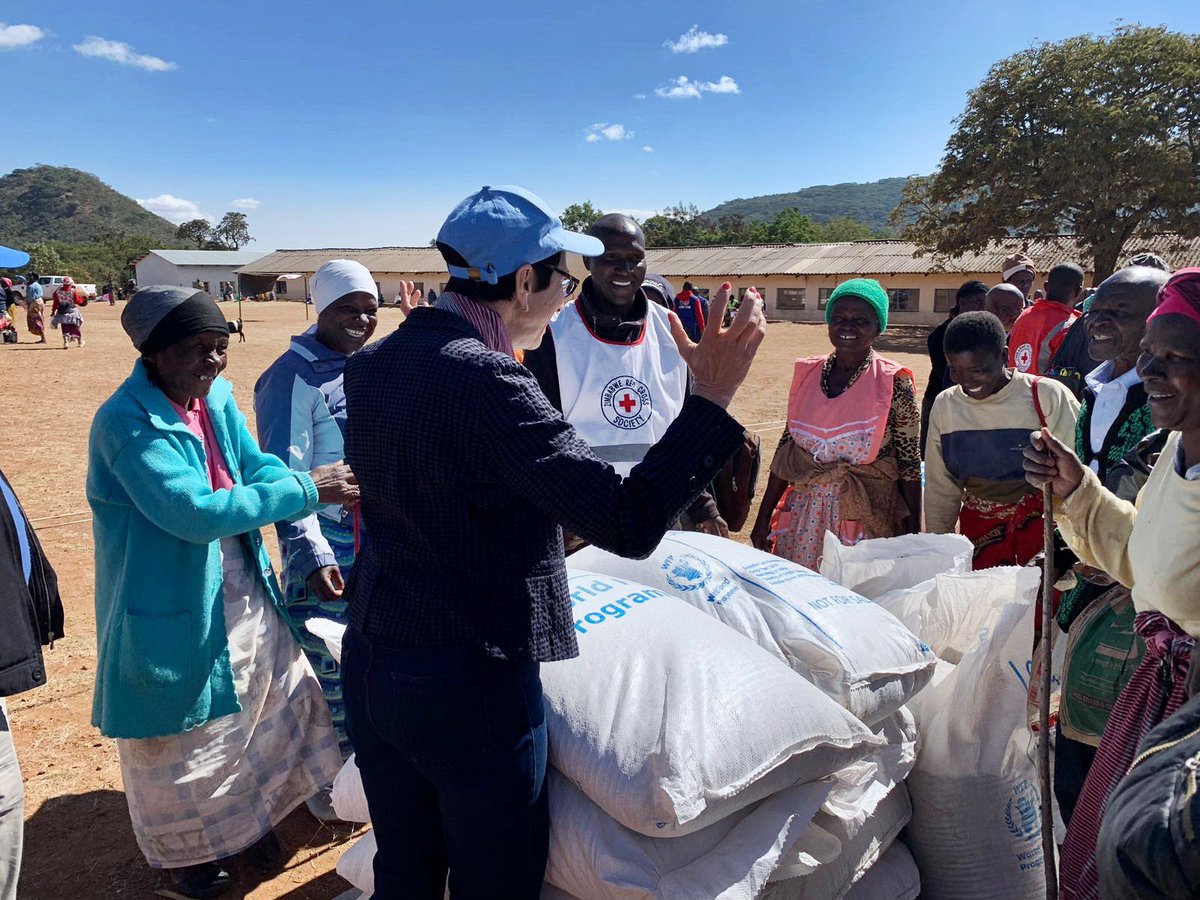By Tatenda Mujeyi
A United Nations (UN) Delegation led by Assistant Secretary General for Humanitarian Affairs and Deputy Emergency Relief Coordinator in the United Nations Office for the Coordination of Humanitarian Affairs (OCHA), Ms Ursula Mueller, presented a press briefing on their findings following a tour to Cyclone hit areas.
The delegation’s visit was necessitated by the need to see first-hand the impacts of the cyclone which they attributed to climate change.
“I wanted to come here to see first-hand the impact of climate change in the three countries – a phenomenon that the population of these countries had no hand in creating – but climate change effects are exacerbating the risks faced by already extremely vulnerable people.” Ms Mueller said
The delegation noted an unfolding triple jeopardy as the effects of the Cyclone had been exacerbated by a severe draught experienced this year and an unfolding economic crisis.
“Here in Zimbabwe, our visit comes at a critical junction as the country recovers from the impact of Cyclone Idai and continues to suffer from severe drought and chronic economic challenges.” Ms Mueller said.
The delegation labelled the effects of the Cyclone as saddening and disheartening, characterised by hunger and displacements while hundreds are still to be accounted for three months after the disaster.
“The loss of life, the level of destruction of property and livelihoods are devastating. It’s heart-breaking. Sadly, nearly three months after the cyclone’s landfall, over hundreds are still missing, thousands of people remain displaced in camps and host communities, and the damage to livelihoods has increased the chronic food security situation already present.” The Assistant Secretary General for Humanitarian Affairs and Deputy Emergency said.
The delegation commended the resilient character of the affected communities but noted their need for assistance.
“I talked to many people who are displaced, many women, people who lost everything. And while I could see how resilient and strong they are – some women are even starting small business inside of the camp, as Kuda, who is growing chickens – they are particularly vulnerable and need support to get back to their normal lives,” Ms Mueller said.
The delegation estimates that the cyclone, coupled by the drought was potentially looming into a crisis that might affect six million people until the next harvest.
“Initial estimates based on the assessment of the current trend of the agricultural production indicate that over 6 million people would require humanitarian assistance until the next harvest in April 2020,” the Assistant Secretary General for Humanitarian Affairs and Deputy Emergency said.
The Assistant Secretary General for Humanitarian Affairs and Deputy Emergency, also noted that access to drugs and HIV remained a critical challenge.
“People are struggling to buy medicines and access healthcare. This is particularly distressing for people living with HIV who face the double dilemma of being unable to access drugs and, even if they can access them, not being able to properly absorb them on an empty stomach,” Ms Mueller added.
Mueller’s visit is part of a seven day tour to Cyclone Idai affected countries and will potentially facilitate for the sourcing of more funding to facilitate for the potential relief which the Zimbabwean government still requires.






